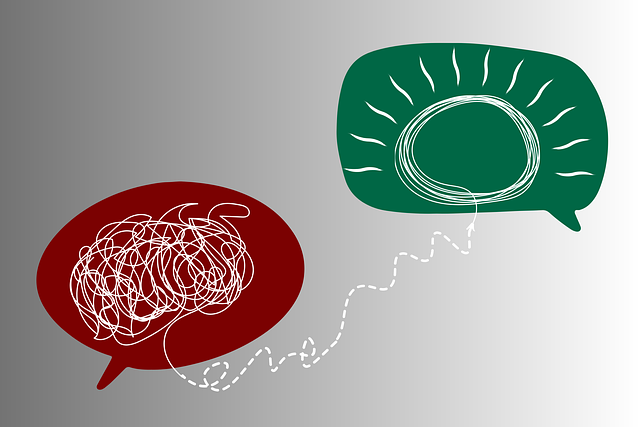Englewood Grief Counseling Therapy provides specialized support for individuals experiencing loss, grief, and bereavement. Through evidence-based practices, therapists create safe spaces for clients to process emotions, remember loved ones, and build resilience. Offered services include individual and group sessions, mindfulness meditation, cognitive-behavioral therapy, and crisis intervention, catering to diverse cultural beliefs and unique grieving stages. The ultimate goal is to help clients navigate their emotional journeys, heal, and discover new paths to joy and meaning after loss.
Loss, grief, and bereavement are universal experiences that can profoundly impact individuals. This comprehensive guide explores these complex emotions, offering a deeper understanding of the grieving process. We delve into the transformative power of counseling, highlighting its role in navigating difficult times. Specifically, we focus on Englewood Grief Counseling Therapy as a promising path to healing. By recognizing common stages and implementing effective strategies, this article provides valuable insights for managing long-term grief and fostering resilience.
- Understanding Loss, Grief, and Bereavement: A Comprehensive Overview
- The Role of Counseling in Navigating Grief and Bereavement
- Englewood Grief Counseling Therapy: Unlocking Healing Paths
- Common Grieving Processes: Recognizing Stages and Supportive Strategies
- Effective Techniques and Interventions for Long-Term Grief Management
Understanding Loss, Grief, and Bereavement: A Comprehensive Overview

Loss, grief, and bereavement are deeply personal experiences that can significantly impact an individual’s mental wellness. Understanding these concepts is a crucial first step in providing effective support through counseling. Loss refers to the absence or departure of someone or something valued, while grief is the emotional response to loss, often characterized by sorrow, anger, or guilt. Bereavement, on the other hand, pertains to the period after a significant loss, during which individuals navigate their emotions and adjust to life without their loved one.
Englewood Grief Counseling Therapy offers a safe space for folks to process these complex emotions. The process involves acknowledging and validating individual experiences, providing coping strategies, and fostering resilience. In addition to traditional counseling sessions, Mental Wellness Podcast Series Production can offer valuable insights and support through engaging content that discusses various aspects of grief. Moreover, professionals in this field must conduct thorough Risk Assessment for Mental Health Professionals to ensure they are equipped to handle sensitive situations effectively while prioritizing their well-being. Effective communication strategies are also vital, as they enable counselors to build trust with clients and facilitate meaningful conversations about loss, grief, and the healing process.
The Role of Counseling in Navigating Grief and Bereavement

Navigating grief and bereavement can be a challenging and complex process for individuals dealing with loss. Here, counseling plays a pivotal role in offering support and guidance during this difficult time. Through Englewood Grief Counseling Therapy, clients gain access to specialized professionals who understand the unique nature of each person’s grief journey. These therapists employ evidence-based practices and empathy-building strategies to help individuals process their emotions, remember their loved ones, and gradually adapt to life without them.
The process involves creating a safe and non-judgmental space where clients can express their feelings freely. Cultural sensitivity in mental healthcare practice is paramount, ensuring that the counseling approach respects individual cultural beliefs and traditions related to grief and mourning. Additionally, crisis intervention guidance is provided to help individuals cope with sudden or traumatic losses, offering immediate support and strategies for managing intense emotions.
Englewood Grief Counseling Therapy: Unlocking Healing Paths

Englewood Grief Counseling Therapy offers a nurturing space for individuals and families navigating loss. Trained therapists utilize evidence-based approaches to support clients in processing grief, fostering mental wellness, and cultivating coping strategies. Through individual or group sessions, participants learn mindfulness meditation techniques to soothe troubled minds and enhance self-esteem, ultimately unlocking paths towards healing and personal growth in the face of bereavement.
This specialized therapy goes beyond traditional counseling by empowering individuals with tools to navigate life’s challenges. By combining therapeutic methods with practices like mindfulness meditation, clients gain a deeper sense of understanding and peace. Engaging in these sessions can be transformative, helping people transform their grief into manageable pain, allowing them to rediscover joy and find meaning again in their lives.
Common Grieving Processes: Recognizing Stages and Supportive Strategies

The journey through grief is often a complex process, unique to each individual’s experience. Common grieving processes typically involve several distinct stages, as identified by many professionals in Englewood Grief Counseling Therapy. These stages include denial, anger, bargaining, depression, and acceptance—a cycle that may repeat itself over time. Recognizing these phases is crucial for effective support.
Counselors play a vital role in guiding individuals through these emotional landscapes, offering strategies tailored to each stage. For instance, during the initial shock of loss, stress reduction methods can help manage overwhelming emotions. As grief progresses, burnout prevention techniques become essential tools. Ultimately, supportive environments foster emotional healing processes, enabling individuals to navigate their unique paths towards acceptance and recovery.
Effective Techniques and Interventions for Long-Term Grief Management

Grief is a complex process that often requires professional guidance for long-term management. Englewood Grief Counseling Therapy employs various effective techniques and interventions to support individuals in navigating their grief journey. One key approach is cognitive-behavioral therapy, which helps clients identify and challenge negative thought patterns associated with loss. By reframing these thoughts, individuals can develop healthier coping mechanisms and improve their overall emotional well-being.
Additionally, trauma support services are integrated into the counseling process to address any underlying traumatic experiences linked to the grief. This involves teaching self-care practices that foster resilience building, enabling clients to manage intense emotions effectively. Through individual or group therapy sessions, clients learn valuable skills to process their grief, enhance their ability to adapt, and eventually find meaning in their experience, leading to long-lasting healing and personal growth.
In navigating the complex landscape of loss, grief, and bereavement, engaging in counseling can be a powerful tool. The article has explored these topics, highlighting the transformative potential of Englewood Grief Counseling Therapy in unlocking healing paths. By understanding the stages of grief and employing effective interventions, individuals can manage long-term grief and find solace. This comprehensive overview emphasizes the importance of professional support, offering hope and practical strategies for those navigating difficult emotions associated with loss.













